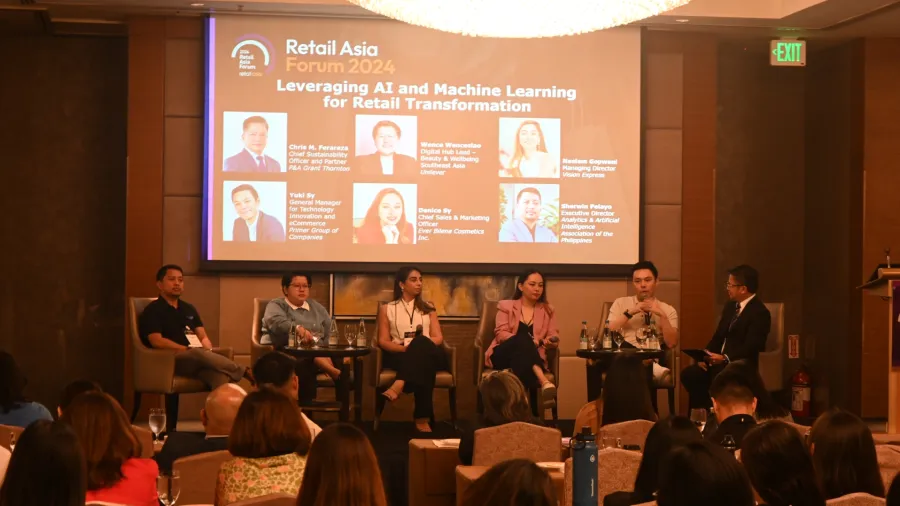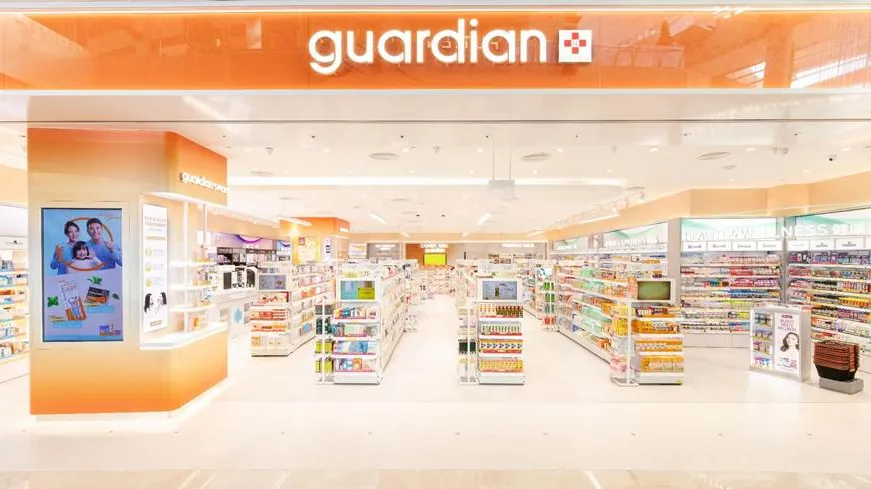
Philippine retailers go high-tech to boost sales
They are using insights from collected data to reach better and faster decisions.
Retailers have started using cutting-edge technology including artificial intelligence (AI) to create a personalised shopping experience and drive revenue, industry leaders told the recent Retail Asia Forum in Manila.
A personalised approach also means streamlining processes for customer satisfaction, Wence Wenceslao, Digital Hub lead-Beauty and Wellbeing for Southeast Asia at Unilever Philippines, and Neelam Gopwani Chainani, managing director at Vision Express Philippines, told a panel discussion.
Wenceslao noted that Unilever’s Beauty Hub Pro uses a selfie uploaded by an online visitor to assess their hair and skin based on 30 data points. "Instead of asking 30 questions, we gain insights from just one selfie.”
Vision Express also has Styling Studio, a tool that analyses facial features, eye colour, and skin complexion from a simple photo to recommend the most suitable eyeglasses. “The platform can also consider your budget,” Chainani said.
“The goal is to enhance the customer’s shopping experience, shifting away from the self-service trend of five to 10 years ago to a more service-oriented approach,” she added.
The eyewear company also uses merchandising software that automates restocking by looking at in-store sales data to prevent stockouts and optimise inventory. “Although it’s still in the early stages, the concept and ease of use have already noticeably improved our retail workflow,” Chainani said.
Wenceslao said Unilever’s AI-driven platform has notably improved the business. “Since launching, we’ve seen a 40% increase in conversion rates and a 59% increase in average basket size.”
Companies have also started using machine learning features of social media to broaden their reach.
Denice Sy, chief sales and marketing officer at Ever Bilena Cosmetics, Inc., noted that initially, they saw limited conversions by targeting specific demographics and using short-term boost ads on TikTok. “What we do now is we open the demographic completely.”
“When we restructured our boosting strategy, we allowed TikTok's machine learning to identify the audience over a few days,” she said. “Gradually, it began targeting users who engaged with the content, leading to better conversions.”
Wenceslao said Unilever is leveraging partnerships across digital platforms, including Facebook and Instagram, to spread the word about their products and promotions.
“We collaborate with trade partners to increase visibility and, in a way, anonymously share audiences — both ours and theirs — to drive traffic to the store,” she said. “We can push out targeted content and utilise machine learning to determine which content performs best for specific audiences.”
Better, faster decisions
Meanwhile, The Primer Group uses AI to improve operational efficiencies and decision-making, General Manager for Technology Innovation and e-Commerce Yuki Sy told the forum.
The group only recently embraced digital transformation — spurred by the global COVID-19 pandemic — after being in the retail business for four decades, he said. “It made us realise the urgency.”
He added that by consolidating data from several touchpoints into a unified dashboard, they can run predictive analytics that support better, faster decisions. “This helps us generate insights and recommendations that empower our managers and leaders to make faster, better decisions.”
Sherwin Pelayo, executive director at the Analytics & Artificial Intelligence Association of the Philippines, said one of the main challenges for organisations adopting AI is ensuring they have quality data.
“You also need to ensure these tools meet standards in security, privacy, and trustworthiness, and that they’re free from biases,” he said. “Many of us are excited by the ‘shiny new thing' that is AI, but we must first consider what the core of our organisation is before selecting the technology.”
The shortage of AI talent in the Philippines can also be a problem. “Our organisation is collaborating with the education system to fast-track the development of more AI engineers to meet the country’s needs."
Sy, who holds a Master’s Degree in Science Innovation from Singapore Management University, said they have built their own AI models rather than relying on external platforms. They also control the models themselves and add a layer of security to mitigate the risk from open-source platforms.
“We have AI developers in our team who create customised models for our specific needs,” Sy said. “This means we can ensure the data we use is securely stored in our servers, within our ecosystem.”



















 Advertise
Advertise







